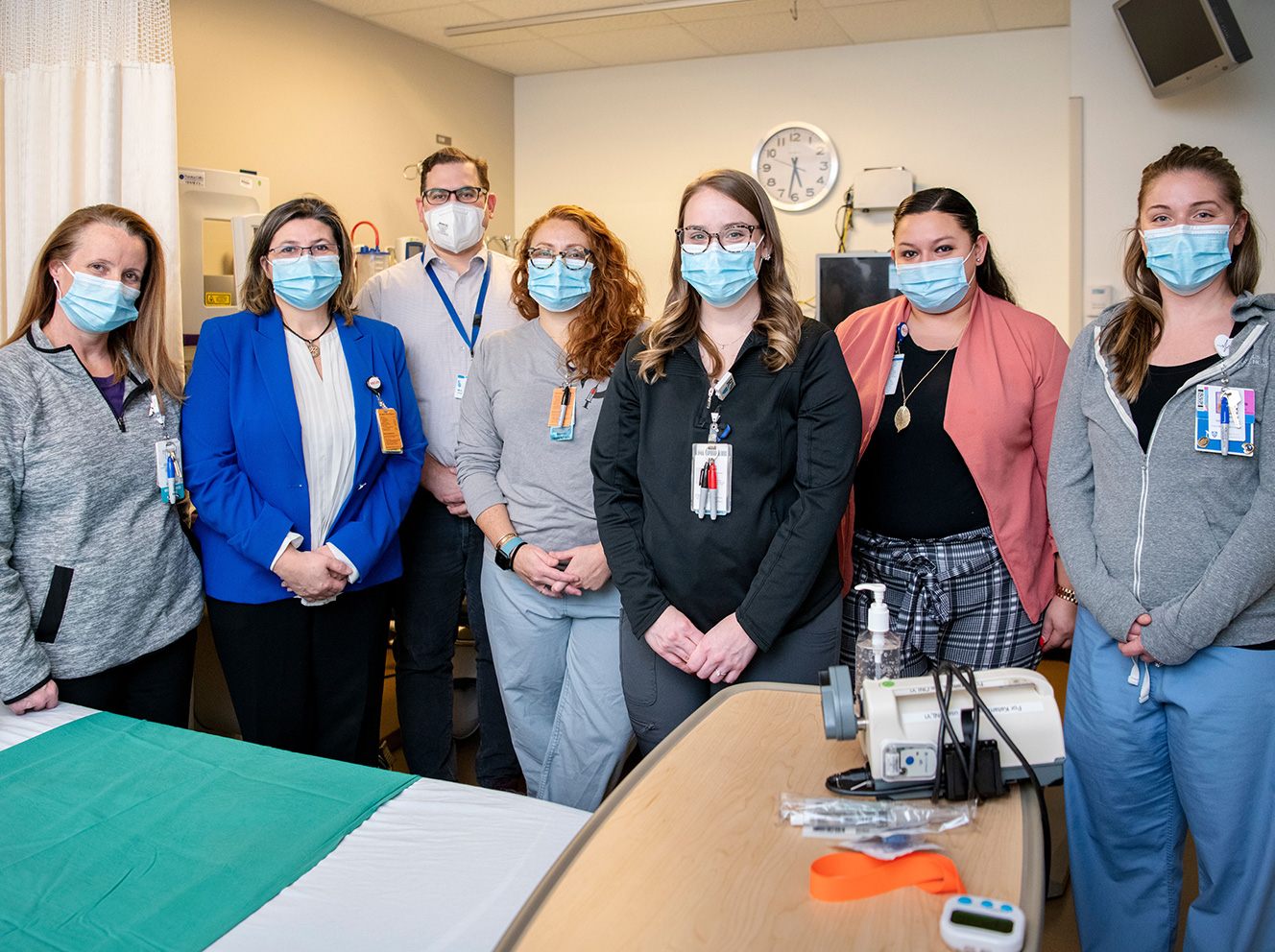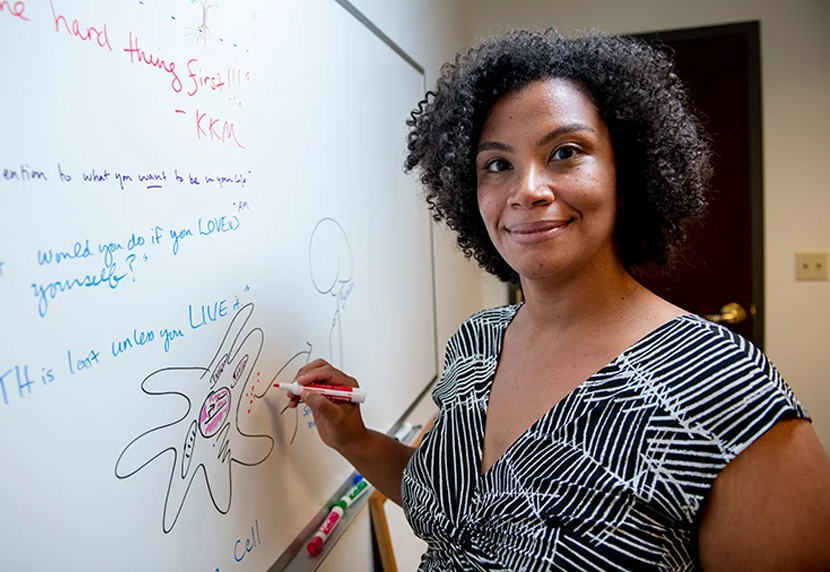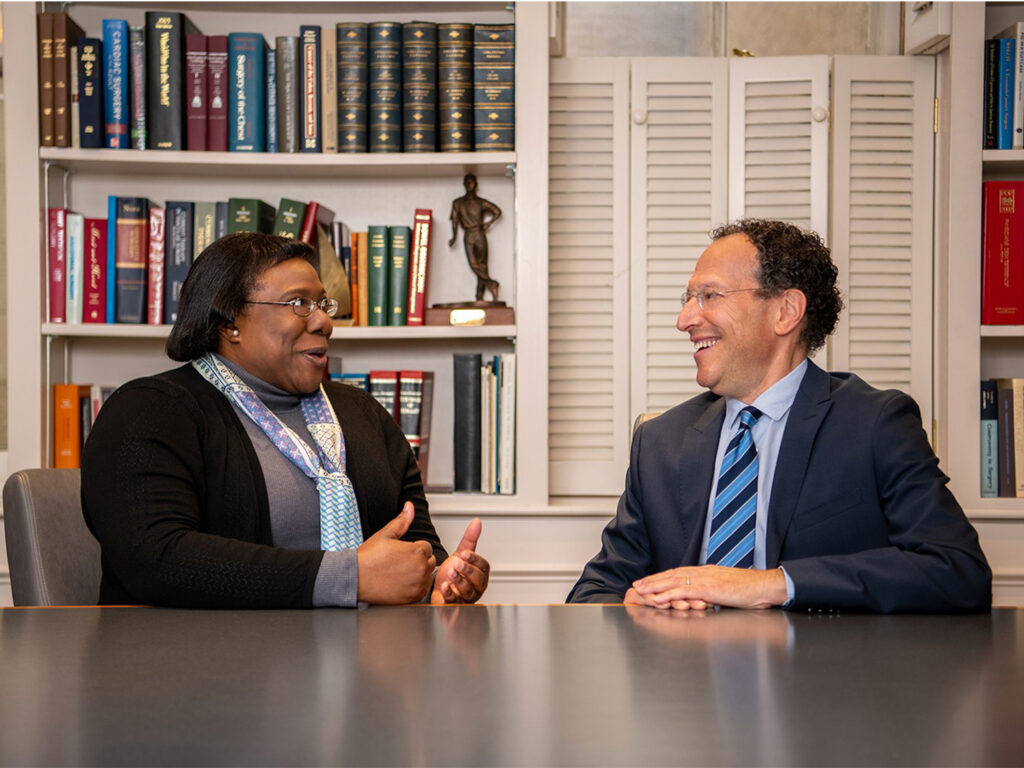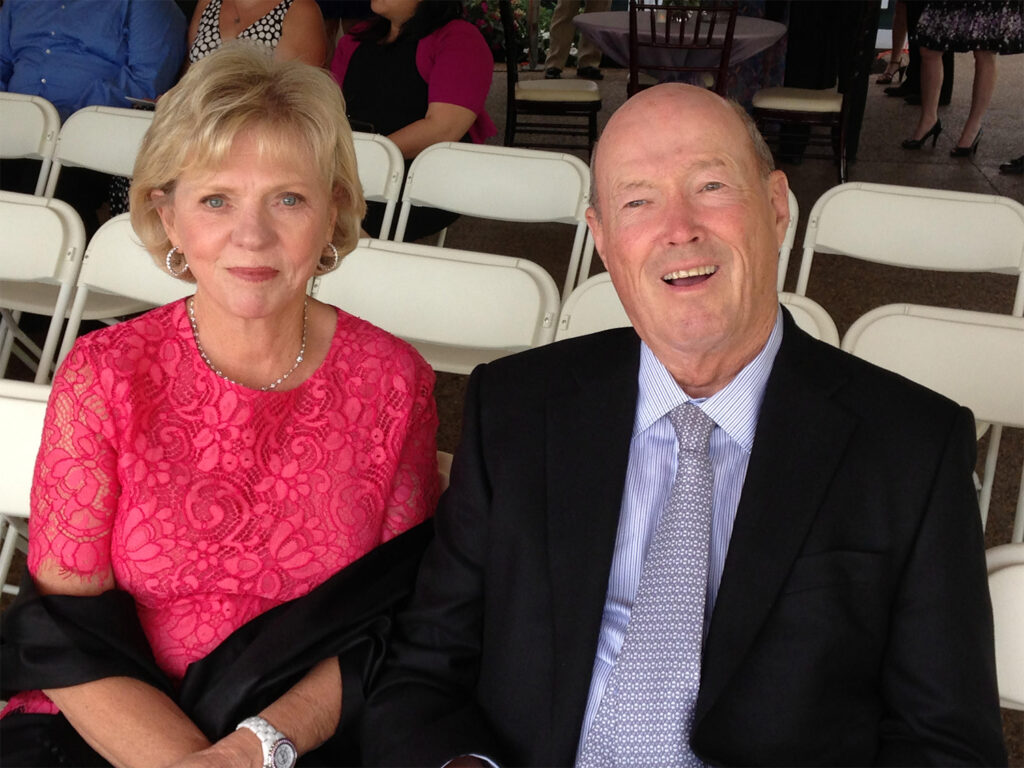It’s 5 pm. The Mass General IV Ketamine Clinic’s first patients of the evening, an elderly man with a cane and a young woman with short hair, are upstairs, waiting, as Cristina Cusin, MD, retrieves the vials of ketamine from the pharmacy technician in the hospital basement. Dr. Cusin and her team will inject a vial slowly into the vein of each patient’s arm to provide relief for their severe depression.
For some patients this vial “is literally the difference between functioning or almost dead,” Dr. Cusin says. “People don’t realize what really severe depression is like. It is a beast,” she notes. She likens it to a Stage 4 advanced disease diagnosis.
Dr. Cusin is director of the IV Ketamine Clinic at Mass General, which opened in 2018. Ketamine is a medication primarily used as anesthesia and, illegally, as a hallucinogen, but it is proving effective at reducing severe depression and suicidality. The current treatments for major depressive disorder, which is associated with a 20-fold increase in risk of suicide, can take weeks or months to work. Ketamine rapidly decreases depression in patients at high risk for suicide and suicide attempts, with fewer side effects.
A Unique Model
The IV Ketamine Clinic is one of a handful in the country that is actually integrated into an academic center, says David Mischoulon, MD, director of the Depression Clinical and Research Program. “As such, the clinical care is strongly supported by findings obtained in clinical trials,” he notes.
Ketamine therapy consists of a series of infusions that need to be administered and carefully monitored in a clinical setting. Dr. Cusin relies on current data to guide her treatment plans and individualize doses and regimens for her patients.
The clinic has a three and a half month wait list and remained open throughout the COVID-19 pandemic because it was considered essential to “prevent worsening and possible hospitalization of the high-risk patients we serve,” says Dr. Cusin. It recently received authorization to treat teenagers, in the range of 15 to 18 years old. Dr. Cusin has seen patients whose depression started at age 8, who attempted suicide by age 12 and who have failed many treatments already by age 15. “She never loses hope. Her heart is huge,” Dr, Cusin’s colleagues say of her. “The most treatment-resistant patients are her patients.”
The Need for Ongoing Research
Ketamine alleviates symptoms of depression and suicidality in almost 50 percent of patients, often within one day, but its effects are relatively short-lived — between two and four weeks. Most patients will relapse within weeks after stopping treatment and need ongoing maintenance.
More research is needed. The American Foundation for Suicide Prevention recently awarded Dr. Cusin a $1.3M grant to study the real-world effectiveness of maintenance treatment with IV ketamine for six months in patients who are hospitalized for suicidality and depression.
However, ketamine as a psychiatric treatment is viewed as experimental by traditional funding sources, such as federal agencies, and by insurance companies. The treatments, which currently cost $530 per infusion visit, are not fully covered by insurance. About half of the clinic’s patients pay out-of-pocket for their treatments, Dr. Cusin estimates. “[Others] call us, but can’t afford to get treated,” she replies. “It’s heartbreaking.”
Addressing the Issue
Approximately 20 patients per night are treated at the clinic. Patients have complicated mental and, often, physical health needs, including severe anxiety and PTSD and require support from specialists and an integrated care team. More space is needed, and more resources, including a case manager, a social worker and clinicians, especially therapists, who can follow the patients on an outpatient basis, Dr. Cusin says.
“People with severe depression often get re-hospitalized, or re-attempt suicide within a few months. We can’t simply discharge them and hope for the best,” she says. “If we can keep people out of the hospital and out of the morgue, that means that ketamine makes a difference.”
To make a gift or learn more about supporting the Mass General Intravenous Ketamine Clinic for Depression, please contact us.





